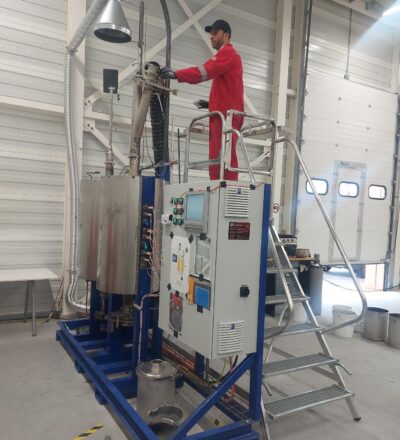The recovery and production of bulk and platform chemicals from streams currently classified as waste, which would otherwise be incinerated, can significantly reduce CO2 emissions throughout product value chains. However, municipal, agricultural or electronic waste among others, can be difficult to revalue. At ISPT we aim to develop new circular value chains for the valorisation of these complex and mixed waste streams into valuable chemical products using innovative conversion technologies.
One of these projects in which we actively developing new value chains is ReBBloCS. In this project, a large group of interdisciplinary organisations are collaborating to evaluate the potential of novel chemical conversion technologies. Three technologies on several complex waste streams are being assessed: hydrolysis, pyrolysis, and gasification.
Direct Carbon Immobilization
Gasification is the process of heating material to extreme temperatures in the absence of oxygen. One of our partners in the ReBBloCS project that is working on gasification is DOPS Recycling Technologies, a Dutch start-up. They are using a new process, called Direct Carbon Immobilization (DCI). With this conversion technology they can produce syngas and solid residues such as sequestered carbon or metals, all of which are valuable feedstocks.
DOPS was recently featured on Dutch television explaining more about this impactful technology. Watch the episode below.
Discover other projects on chemical recycling
ISPT actively participates in several projects that focus on the material transition. In particular the separation and conversion of waste streams for a circular economy. Some of these projects include:
- ReCover: This project designs and develops novel functional materials and technologies to selectively recover high-value molecules. By using electricity to capture molecules, the aim is to reduce the energy consumption of separation technology.
- DISCO: This project aims to reduce material usage while increasing efficiency in industrial production trains using several seperation technologies.
- PROVE IT: Capturing CO2 and using it to make methanol could provide an answer to the growing demand for sustainable fuels. The PROVE IT project will make the CO2-to-methanol pathway more efficient and therefore more economically viable.
Acknowledgement
This project is co-funded with subsidy from the Topsector Energy by the Ministry of Economic Affairs and Climate Policy.
